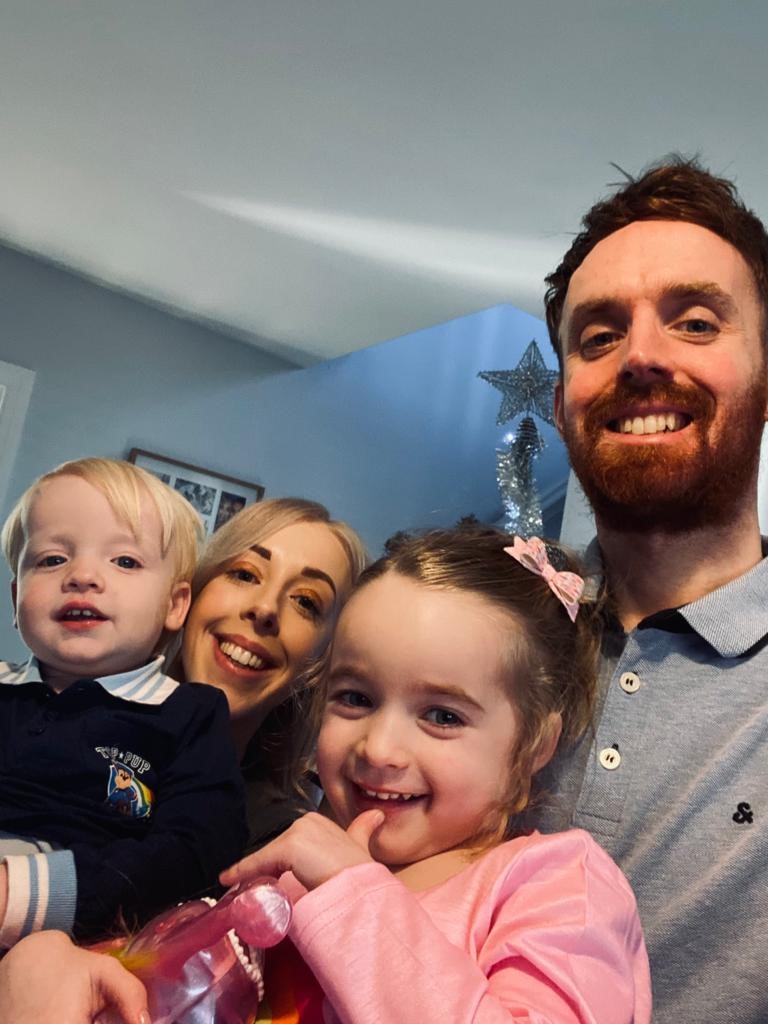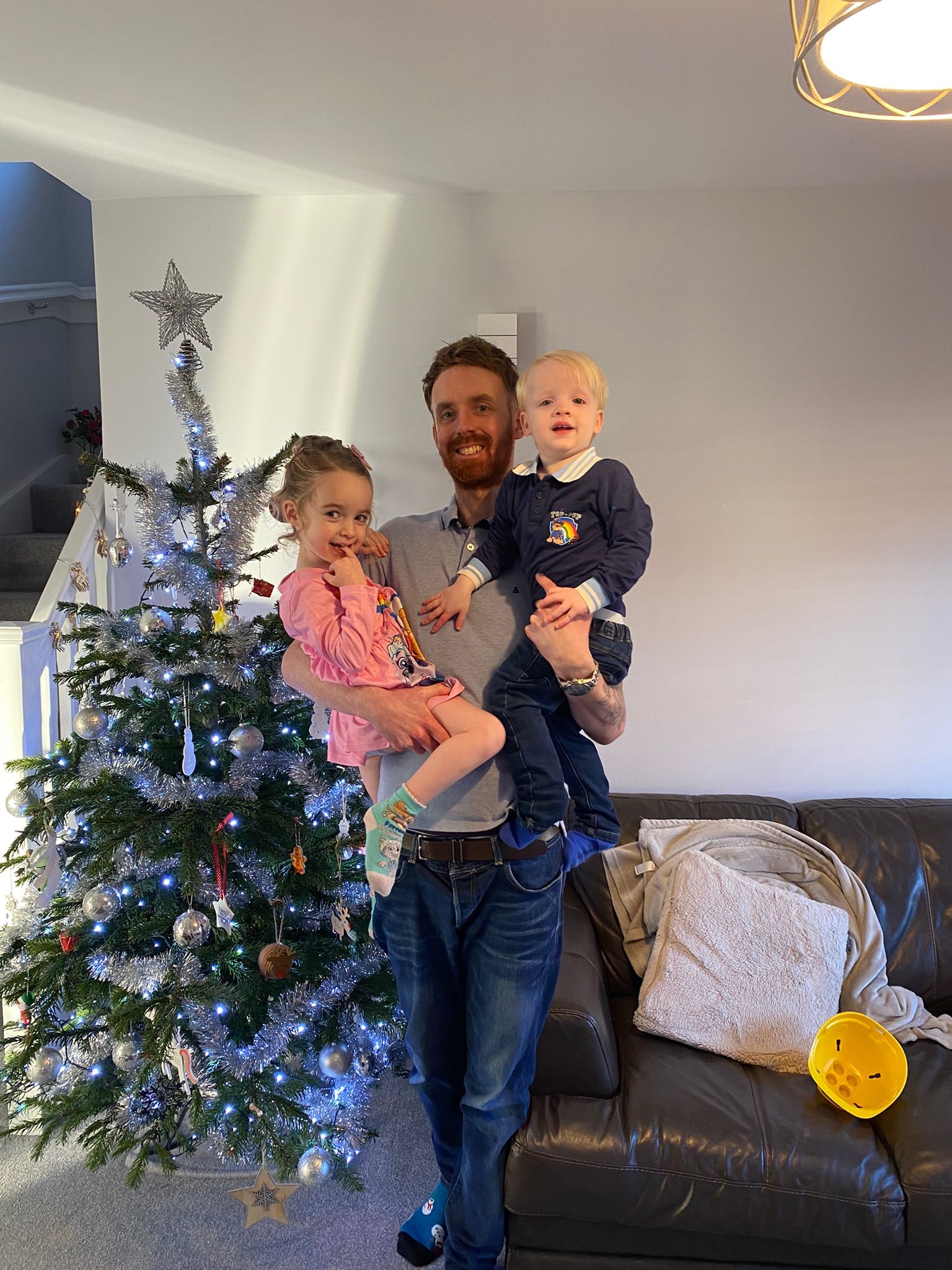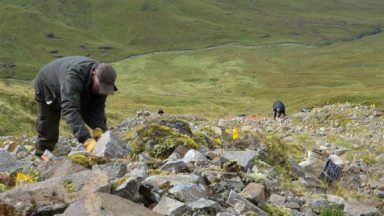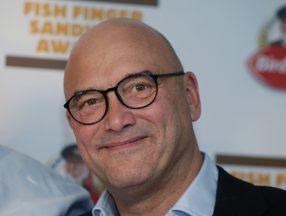A man diagnosed with an incurable brain tumour six years ago is now working with a dedicated charity to raise awareness of the disease.
Father-of-two Stewart Bryson, from Inverness, was first told he had a glioblastoma multiforme (GBM) brain tumour in 2016.
The 34-year-old is now helping UK based medical charity Brain Tumour Research find a cure through campaigning for an increase in the national investment into research to £35m per year.
The charity is also fundraising to create a sustainable network of brain tumour research centres in the UK.
Stewart, a senior recruitment consultant, first realised something was wrong when he had an eye test at Specsavers in October 2014.
Explaining the process, he aid: “I had to cover one eye and then press a button each time I saw a dot on the screen.
“My left eye was fine, but I couldn’t see any dots with my right eye.”
 Brain Tumour Research
Brain Tumour ResearchStewart’s GP immediately referred him to Raigmore Hospital in Inverness. Six weeks later, in November, he had an MRI scan which revealed a mass on his brain.
In January 2015, Stewart had an awake craniotomy and surgeons removed as much of the low-grade tumour as they could but were unable to get it all out.
He then had MRI scans every three months to monitor the tumour, but in 2016 a scan showed the tumour had grown so he underwent a second operation.
It was found that his tumour had changed, and he was diagnosed with a GBM.
Stewart said: “My oncologist said the average prognosis was a few months without treatment or 17 months with treatment.
“He said I had a number of positive factors such as my age – I was 28 at the time – and my high degree of general fitness.
“I’m grateful my body has responded so well to the chemotherapy and radiotherapy treatment.
“Having a positive attitude and temperament has allowed me to just get on with daily life without dwelling on my condition.
“After two years free from surgery, the arrival of our daughter Isla was such a joy, followed 20 months later the birth of our son Finley.
“The great joy was short lived as a few weeks later a scan showed a tumour had appeared in a different area.
“Bringing up a young family with my fiancé has been my main focus and dilutes the intensity of my health.
“Being able to return to full-time work also contributes to me enjoying a normal life.”
Stewart had a third operation on March 25 – one month after the birth of Finley – and then started another course of chemotherapy and radiotherapy in May.
When Finley was born, Stewart’s partner, Natalie Jones, 32, moved back to her parents’ house in Elgin for support, while Stewart recovered at his family home in Inverness.
Stewart said: “It was hard being apart and only seeing my young family on video calls.
“As much as I love them, I didn’t want to be living with my parents, and I don’t like sitting down and feeling sorry for myself.
“I’m only 34, but at least I’ve had a life, unlike some young children who have what I have.
“Of course, I want to see my children go to primary school and university, and watch them get married, but I try not to think about it too much.
“It is what it is.”
 Brain Tumour Research
Brain Tumour ResearchStewart now has MRI checks every six months which have shown that the original tumour at the back of his head remains stable. The second tumour at the front of his head has virtually disappeared.
Brain tumours kill more children and adults under the age of 40 than any other cancer yet, historically, just 1% of the national spend on cancer research has been allocated to this devastating disease.
Brain Tumour Research is the only national charity in the UK singularly focused on finding a cure for brain tumours through campaigning for an increase in the national investment into research to £35m per year.
Matthew Price, community development manager at Brain Tumour Research said: “We’re really grateful to Stewart for working with us as it’s only with the support of people like him that we’re able to progress our research into brain tumours and improve the outcome for patients who are forced to fight this awful disease.
“Unlike many other cancers, brain tumours are indiscriminate. They can affect anyone at any time.
“Too little is known about the causes and that is why increased investment in research is vital.”
Brain Tumour Research funds sustainable research at dedicated centres in the UK.
It also campaigns for the government and the larger cancer charities to invest more in research into brain tumours in order to speed up new treatments for patients and, ultimately, to find a cure.
Follow STV News on WhatsApp
Scan the QR code on your mobile device for all the latest news from around the country


 Brain Tumour Research
Brain Tumour Research
























